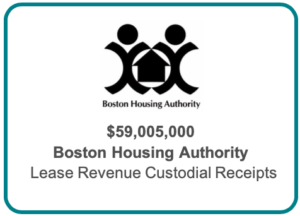


In the midst of the Great Recession, the Boston Housing Authority (“BHA”) had a large money center bank back out of a significant financing. BHA needed to secure a fixed-rate, 20-year plus construction financing to take advantage of energy conservation incentives of the United States Department of Housing and Urban Development (“HUD”). Traditional industry funding sources were in flux.
HUD spends approximately $6.4 billion in utility assistance each year. HUD established incentive programs to encourage Public Housing Authorities to take on Energy Performance Contracting (“EPC”) to help reduce these utility costs. Normally offered by Energy Service Companies (ESCOs), this innovative financing technique allows building users to achieve energy savings without upfront capital expenses. The costs of the energy improvements are financed on the front end and paid back out of the energy savings and the HUD incentives for a period up to 20 years.
Having recently financed a smaller but similar transaction for another public housing authority, BHA entrusted Crews to provide the needed $59,005,000 in financing. Crews repeated the same innovative process that had successfully worked for that prior transaction, securitizing and selling participations of an equipment financing lease into the municipal bond market with an investment grade credit rating of “A+” by Standard & Poor’s. This transaction, however, had an additional twist. Crews was able to help BHA take advantage of a special federally subsidized financing program, Build America Bonds. The financing was sold as taxable to investors and the federal government agreed to pay 35% of the interest cost.
Further, BHA needed flexibility for early payoff of the financing without penalty to allow for hopeful property redevelopments. Crews structured a portion of the financing to be able to be prepaid early with very little interest rate impact.
Crews worked hard to serve our client in extraordinary ways by: